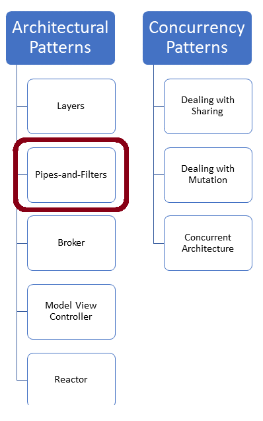Hiring for C++ with Meeting C++
A presentation on the results of the Meeting C++ online job fair in 2022 & 2023 and the plans for the next for May 9th & 10th
Hiring for C++ with Meeting C++
by Jens Weller
Video:
March 11-13, Online
March 16-18, Madrid, Spain
March 23-28, Croydon, London, UK
March 30, Kortrijk, Belgium
May 4-8, Aspen, CO, USA
May 4-8, Toronto, Canada
June 8 to 13, Brno, Czechia
June 17-20, Folkestone, UK
September 12-18, Aurora, CO, USA
November 6-8, Berlin, Germany
November 16-21, Búzios, Rio De Janeiro, Brazil
By Meeting C++ | Apr 21, 2023 02:24 AM | Tags: meetingcpp hiring community
A presentation on the results of the Meeting C++ online job fair in 2022 & 2023 and the plans for the next for May 9th & 10th
Hiring for C++ with Meeting C++
by Jens Weller
Video:
By Blog Staff | Apr 20, 2023 01:15 PM | Tags: None
 This post is an updated version of an article from five years ago, now that everything Sy talked about is in the standard and implemented in Visual Studio.
This post is an updated version of an article from five years ago, now that everything Sy talked about is in the standard and implemented in Visual Studio.
Functional Exception-less Error Handling with C++23’s Optional and Expected
by Sy Brand
From the article:
In software things can go wrong. Sometimes we might expect them to go wrong. Sometimes it’s a surprise. In most cases we want to build in some way of handling these misfortunes. Let’s call them disappointments.
std::optionalwas added in C++17 to provide a new standard way of expressing disappointments and more, and it has been extended in C++23 with a new interface inspired by functional programming.
By Blog Staff | Apr 19, 2023 09:09 AM | Tags: None
This post explains the benefits of the new “rangified” algorithms, talks you through the new C++23 additions, and explores some of the design space for fold algorithms in C++.
C++23’s New Fold Algorithms
by Sy Brand
From the article:
C++20’s algorithms make several improvements to the old iterator-based ones. The most obvious is that they now can take a range instead of requiring you to pass iterator pairs. But they also allow passing a “projection function” to be called on elements of the range before being processed, and the use of C++20 concepts for constraining their interfaces more strictly defines what valid uses of these algorithms are. These changes allow you to make refactors like:
// C++17 algorithm cat find_kitten(const std::vector<cat>& cats) { return *std::find_if(cats.begin(), cats.end(), [](cat const& c) { return c.age == 0; }); } // C++20 algorithm cat find_kitten(std::span<cat> cats) { return *std::ranges::find(cats, 0, &cat::age); }
By Blog Staff | Apr 17, 2023 10:40 AM | Tags: None
 The Broker Pattern structures distributed software systems that interact with remote service invocations. It is responsible for coordinating the communication, its results, and exceptions.
The Broker Pattern structures distributed software systems that interact with remote service invocations. It is responsible for coordinating the communication, its results, and exceptions.
Broker
by Rainer Grimm
From the article:
The Broker Pattern from the book "Pattern-Oriented Software Architecture, Volume 1" helps solve many challenges of distributed systems, such as finding the appropriate service provider, communicating with them securely, using the right programming language, or dealing with errors. This will not go into the details. It should only provide you with a rough idea of the Broker Pattern. For further information, study the pattern in the book "Pattern-Oriented Software Architecture, Volume 1".
By Blog Staff | Apr 13, 2023 04:50 PM | Tags: None
 In this article, I cover Default constructuctible lambdas.
In this article, I cover Default constructuctible lambdas.
C++20 Lambda Extensions: Lambda Default Constructors
by Gajendra Gulgulia
From the article:
1. Default construction: Very short background
In C++ objects are default constructible if they satisfy certain conditions. The set of conditions vary and I’ll not go into all the details of what they are as it will be out of the scope of this article. Consider the Person class with default constructor in line 3.
class Person{
public:
Person() = default; //default constructor
Person(std::uint32_t age, std::string name):
age_{age}, name_{name}
{ /*empty body */ }
std::string getName() const { return name_;}
std::uint32_t getAge() const { return age_; }
void setAge(const std::uint32_t age) {age_ = age;}
void setName(const std::string& name){name_ = name;}
private:
std::uint32_t age_{};
std::string name_{};
};
By TartanLlama | Apr 13, 2023 01:02 PM | Tags: c++20
If you want to find out more about the std::ranges::fold_* algorithms in C++23, here's a new post for you.
C++23’s New Fold Algorithms
By Sy Brand
From the article:
C++20 added new versions of the standard library algorithms which take ranges as their first argument rather than iterator pairs, alongside other improvements. However, key algorithms like std::accumulate were not updated. This has been done in C++23, with the new std::ranges::fold_* family of algorithms.
By Meeting C++ | Apr 13, 2023 08:37 AM | Tags: meetingcpp community
Today this years edition of the Meeting C++ conference has been announced:
Announcing Meeting C++ 2023
by Jens Weller
From the article:
This years Meeting C++ conference will be held in Berlin on the 12th - 14th November!
Like in the previous year, we will be hosting 3 tracks on site and plan for a prerecorded online track. The online part also will include live streams from all onsite talk tracks.
Tickets are available via event brite...
By Blog Staff | Apr 11, 2023 04:48 PM | Tags: None
 The layers pattern splits a task into horizontal layers. Each layer has a specific responsibility and provides a service to a higher layer.
The layers pattern splits a task into horizontal layers. Each layer has a specific responsibility and provides a service to a higher layer.
Layers
by Rainer Grimm
From the article:
The Layers Pattern is an architectural pattern that helps, according to the book "Pattern-Oriented Software Architecture, Volume 1", to bring structure into the mud.
Although not specified, most layered architectures consist of three or four layers. Each layer is independent of the other layer. In the pure version, a layer can only access its layer below. A layer can not access its upper layer because it would create additional dependencies and complicates the control structure. Additionally, another application cannot easily use a layer that depends on an upper layer. A layer often provides its functionality by implementing the Facade Pattern. The Facade Pattern provides a simplified interface to a complex system.
By Blog Staff | Apr 7, 2023 04:42 PM | Tags: None
 How to write a class and fuction template declaration which uses functions and lambda expressions as non-type template parameter.
How to write a class and fuction template declaration which uses functions and lambda expressions as non-type template parameter.
C++20 Lambda Expressions, Non-type Template Parameters, Constraints and Concepts
by Gajendra Gulgulia
From the article:
In this article I will explain how to write a class and fuction template declaration which uses functions and lambda expressions as non-type template parameter.
Function as Non-Type-Template-Parameter ( NTTP henceforth) looks like below in class and function template as of C++17.
template<auto FunctionType> class Foo{ // ... }; template<atuo FunctionType> void foo();
By Blog Staff | Apr 6, 2023 07:30 AM | Tags: None
 The Pipes-and-Filters architecture pattern describes the structure of systems that process data streams.
The Pipes-and-Filters architecture pattern describes the structure of systems that process data streams.
Pipes-and-Filters
by Rainer Grimm
From the article:
The Pipes-and-Filters pattern is similar to the Layers Pattern. The idea of the Layers Pattern is to structure the system in layers so that higher layers are based on the services of lower layers. The Pipes-and-Filters naturally extend the Layers Pattern, using the layers as filters and the data flow as pipes.